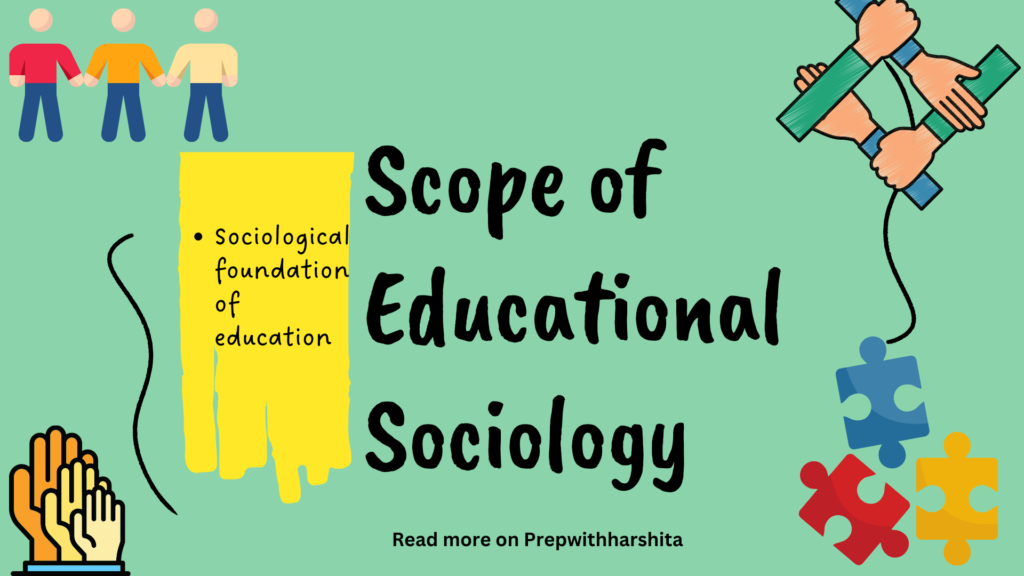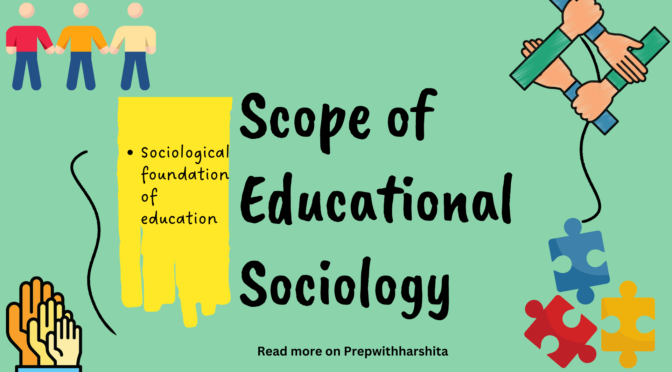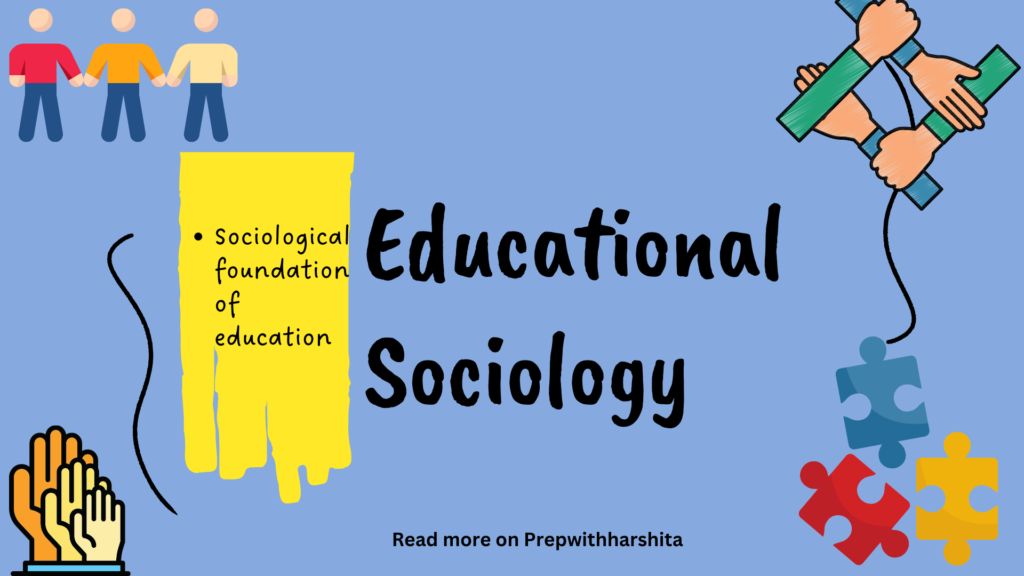The scope of educational sociology is vast and encompasses various aspects of education and its relationship to society. The term “scope” in the context of educational sociology refers to the range or breadth of topics, issues, and areas of study that fall within the domain of this field.
It defines the boundaries and extent of the subject matter that educational sociology covers. The scope of educational sociology determines what aspects of education and society are explored, analyzed, and researched within this discipline. It helps establish the field’s focus, objectives, and areas of inquiry.
The scope of educational sociology is vast and encompasses various aspects of education and its relationship to society.
Here is a detailed overview of the scope of educational sociology:
- Socialization and Education: Educational sociology explores how educational institutions contribute to the socialization process by examining how schools transmit knowledge, values, norms, and social roles to individuals. It investigates how educational settings shape individuals’ identities, beliefs, attitudes, and behaviors.
- Educational Systems and Structures: Educational sociology analyzes the structure, organization, and functioning of educational systems at different levels, such as early childhood education, primary and secondary schools, higher education, and adult education. It examines the social factors that influence educational policies, practices, curriculum development, pedagogy, and assessment methods.
- Educational Inequalities: A key focus of educational sociology is the examination of educational inequalities and their causes. It investigates how social factors such as social class, race, ethnicity, gender, and other dimensions of social difference influence educational opportunities, access to resources, and academic achievement. It examines disparities in educational outcomes and the reproduction of social inequalities through educational systems.
- School Culture and Climate: Educational sociology explores the social dynamics, organizational structures, and cultural norms within schools. It examines the relationships between teachers, students, administrators, and other stakeholders, and how these relationships contribute to school culture and climate. It investigates factors such as school discipline, bullying, peer dynamics, and the impact of school culture on student experiences and outcomes.
- Teacher-Student Interactions: Educational sociology examines the interactions between teachers and students and their impact on learning outcomes. It investigates the role of teacher expectations, instructional practices, classroom management, and student engagement in shaping the teaching-learning process. It also explores the influence of power dynamics and social relationships within the classroom.
- Educational Policy and Reforms: Educational sociology analyzes educational policies, their development, implementation, and consequences. It examines how policy decisions impact educational systems, institutions, and practices. It investigates issues such as curriculum reforms, standardized testing, school accountability measures, school choice, funding, and governance structures. It also explores the influence of social and political forces on educational policy-making.
- Education and Social Change: Educational sociology explores the relationship between education and broader societal changes. It investigates how education can contribute to social mobility, social integration, and social transformation. It examines the role of education in promoting social justice, citizenship education, cultural innovation, and sustainable development.
- Comparative and International Perspectives: Educational sociology engages in comparative and international studies to examine educational systems, policies, and practices across different societies and countries. It compares educational outcomes, structures, and cultural contexts to gain insights into the similarities, differences, and best practices in education across various cultural, social, and economic settings.
- Research Methodology and Data Analysis: Educational sociology employs a variety of research methodologies and data analysis techniques to study educational phenomena. It uses qualitative and quantitative research methods, surveys, interviews, observations, and statistical analyses to investigate educational processes, outcomes, and their social implications.
The scope of educational sociology is interdisciplinary, drawing upon theories and concepts from sociology, education, psychology, anthropology, and other social sciences. Its goal is to deepen our understanding of the social dimensions of education and to inform educational policies, practices, and reforms that promote equity, social justice, and positive social change in educational systems and society at large.
Also Visit: Prep with Harshita




